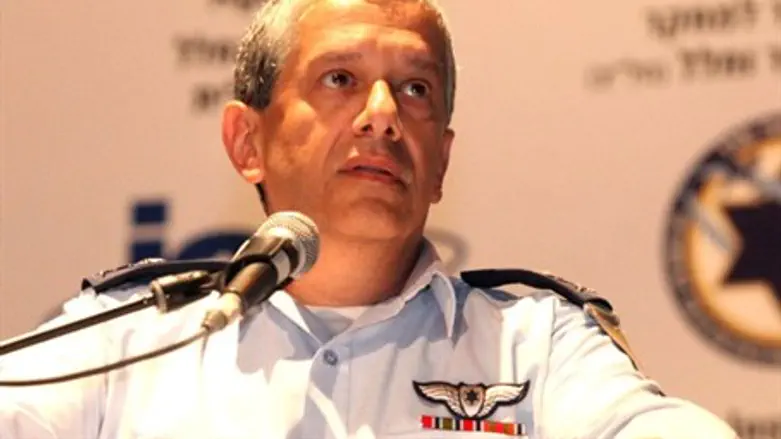
IAF chief and Major General Amir Eshel responded to news of major budget cuts in the IDF Friday, insisting that the air force is ready to defend Israel from any threat - especially Syria.
"We did an analysis to see what would happen if we enter as state of war, if our vulnerability is worsened, as a result of missile and rocket fire - and concluded that crippling the IAF is impossible," he declared, in an interview with Walla! News. "There will be casualties, but not total paralysis. Our defensive systems would be operational; we prepare ourselves for a scenario like this every day."
Eshel reassured concerned analysts that the analysis is sound.
"We took our analysis and gave it to a lab for study within the IDF," he said. "They checked and found the same conclusions. We then took the lab data out of the army and they said we were too tough on ourselves [in our own analysis]."
The IAF will reduce training exercises and train fewer pilots, however. In July the IAF is due to receive new aircraft, a Lavi model M-346, from its Italian maker Alenia Aermacchi; however, the IAF will train pilots to fly the aircraft significantly later.
"We 'll take the training costs and bring the students to a state where they will be more able to participate in operations," said a senior officer in the Air Force.
Additionally, the corps headquarters are undergoing operational restructuring.
"First and foremost we need to worry about air superiority," the officer said. "We need to make sure that our enemies will be destroyed in the event of war."
"On the other hand, we do not have the opportunity to tell the rest of the military system, 'Wait , we're busy.' Therefore, field operational headquarters is changing to support the larger changes happening throughout the IDF [as a result of the cuts]."
Military officials said that concerns are rising over a possible attack from Syrian President Bashar Assad, whose efforts are heavily backed by Russia and Iran. They reassured the public, however, that the IAF is ready to deal with threats from the North, and to attack targets with near-surgical precision.
"It happens quite a lot, almost daily, that a Syrian plane fighting with rebel forces approaches the Golan Heights border" an official said. "When it does happen, [Assad] will fall. It's bound to happen."